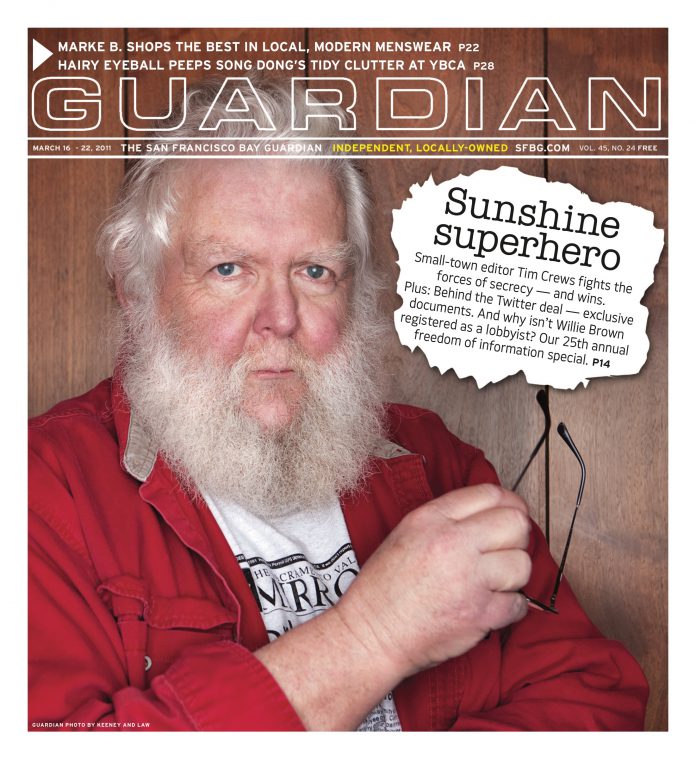arts@sfbg.com
HAIRY EYEBALL “Art enables us to meet my parents again after they have departed,” the contemporary Chinese artist Song Dong says in a statement that introduces his current show at Yerba Buena Center of the Arts. “In my art, they have never been away, and will live with us forever. I think they might still be worrying about our children and us. I wanted to have an exhibition where we would bring them back to us and tell them, ‘Dad and Mom, don’t worry about us, we are all well.’ “
Taking its title from that final reassurance of filial piety, this deeply personal and truly monumental exhibit is a testimony to Song’s sincere belief in the power of art as a means to connect. And you will likely leave a believer too. Art, as Song elaborates in the two decades of work collected here along with accompanying explanatory texts commissioned for the exhibit, allowed him to rebuild his once-strained relationship with his parents while they were still alive. It also allowed him to create a record of their lives together as a family who weathered the worst years of the Cultural Revolution (1966-76), and to help himself and his young daughter connect to the stories and the struggles of his parents’ generation.
Making daily life the stuff of creative practice has its art historical precedents in conceptual art, a label that has often been attached to Song’s output. But such contextualization is largely beside the point in the face of the electric current of emotions — sadness, longing, remorse, gratitude — that it’s hard not to feel while watching the earlier video pieces Song made with and about his father, or surveying the massive installation piece, titled Waste Not, that he collaborated on with his mother.
The video works, the first pieces viewers encounter, offer variations on a simple yet effective technique: Song films himself or someone else sitting in front of a projection of an earlier recorded interview (usually with his father), continually having the person align their face with the face of whoever is speaking in the projected video. Sometimes it is Song aligning himself with his father; sometimes with his father and mother. And in one piece, a viewer can put himself in a Song family portrait via a similar process (the resulting snapshots are uploaded to YBCA’s Flickr account). The effect is ghostly, blurring the projected subject and the filmed subject into a new, purely virtual being.
The sprawling Waste Not is undoubtedly the heart of “Dad and Mom,” which displays the entire contents of the house Song’s mother lived in for 60 years, and where she married and raised Song and his younger sister. Here, organized into neat piles that fill up YBCA’s entire large gallery, are the contents of a life: clothes, kitchen utensils, toiletries, school supplies, shopping bags, toys, shoes, furniture. At the center of the space hang the remains of the house’s walls and room, a skeleton of beams that seems an impossible vessel given the sheer volume of its former contents.
Having grown up amid the lean years of the Great Leap Forward, Song’s mother subscribed to the belief that nothing should go to waste (from which the installation takes it title), so she recycled and saved everything she could, from plastic bottles and fabric scraps to gasoline canisters and balls of string. Song, in turn, saw creating the installation with her as a way to continue this practice. By turning her accumulated junk into a traveling archive, nothing would have to be discarded and everything would be meaningfully preserved.
Originally conceived by Song in 2005 as a way to help his mother cope with the grief over her husband’s sudden death three years earlier, the work has now become a memorial to her memory as well. SONG DONG: DAD AND MOM, DON’T WORRY ABOUT US, WE ARE ALL WELL
Through June 12 Yerba Buena Center for the Arts 701 Mission, SF
(415) 978-2787
ww.ybca.org

